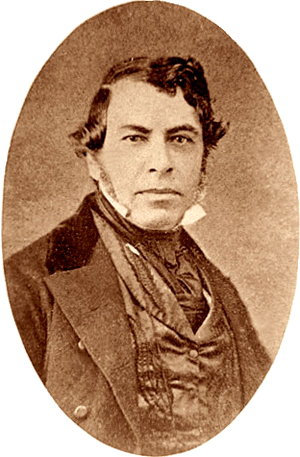 The single best way to protect against the flu is to get vaccinated each year.
The single best way to protect against the flu is to get vaccinated each year.
Why should people get vaccinated against the flu?
Influenza is a serious disease that can lead to hospitalization and sometimes even death. Every flu season is different, and influenza infection can affect people differently. Even healthy people can get very sick from the flu and spread it to others. Over a period of 31 seasons between 1976 and 2007, estimates of flu-associated deaths in the United States range from a low of about 3,000 to a high of about 49,000 people. During recent flu seasons, between 80% and 90% of flu related deaths have occurred in people 65 years and older. “Flu season” in the United States can begin as early as October and last as late as May. During this time, flu viruses are circulating at higher levels in the U.S. population. An annual seasonal flu vaccine (either the flu shot or the nasal spray flu vaccine) is the best way to reduce the chances that you will get seasonal flu and spread it to others. When more people get vaccinated against the flu, less flu can spread through that community.
How do flu vaccines work?
Flu vaccines cause antibodies to develop in the body about two weeks after vaccination. These antibodies provide protection against infection with the viruses that are in the vaccine.
The seasonal flu vaccine protects against the influenza viruses that research indicates will be most common during the upcoming season. Traditional flu vaccines (called “trivalent” vaccines) are made to protect against three flu viruses; an influenza A (H1N1) virus, an influenza A (H3N2) virus, and an influenza B virus. There are also flu vaccines made to protect against four flu viruses (called “quadrivalent” vaccines). These vaccines protect against the same viruses as the trivalent vaccine and an additional B virus.
What kinds of flu vaccines are available?
There are several flu vaccine options for the 2015-2016 flu season.
Traditional flu vaccines made to protect against three different flu viruses (called “trivalent” vaccines) are available. In addition, flu vaccines made to protect against four different flu viruses (called “quadrivalent” vaccines) also are available.
Trivalent flu vaccine protects against two influenza A viruses (an H1N1 and an H3N2) and an influenza B virus. The following trivalent flu vaccines are available:
* Standard-dose trivalent shots (IIV3) that are manufactured using virus grown in eggs. Different flu shots are approved for people of different ages, but there are flu shots that are approved for use in people as young as 6 months of age and up. Most flu shots are given with a needle. One flu vaccine also can be given with a jet injector, for persons aged 18 through 64 years.
* A high-dose trivalent shot, approved for people 65 and older.
* A trivalent shot containing virus grown in cell culture, which is approved for people 18 and older.
* A recombinant trivalent shot that is egg-free, approved for people 18 years and older.
The quadrivalent flu vaccine protects against two influenza A viruses and two influenza B viruses. The following quadrivalent flu vaccines are available:
* A quadrivalent flu shot.
* An intradermal trivalent shot, which is injected into the skin instead of the muscle and uses a much smaller needle than the regular flu shot. It is approved for people 18 through 64 years of age.
* A quadrivalent nasal spray vaccine, approved for people 2 through 49 years of age.
Are any of the available flu vaccines recommended over others?
For the 2016-2017 flu season, ACIP recommends annual influenza vaccination for everyone 6 months and older with either the inactivated influenza vaccine (IIV) or recombinant influenza vaccine (RIV) with no preference expressed when either vaccine is available.
There are many vaccine options to choose from, but the most important thing is for all people 6 months and older to get a flu vaccine every year. If you have questions about which vaccine is best for you, talk to your doctor or other health care professional.
Note: While there is a live attenuated influenza vaccine (LAIV) vaccine, also known as the “nasal spray” flu vaccine that is FDA approved for the U.S. market, ACIP and CDC recommend that nasal spray vaccine not be used during the 2016-2017 season because of concerns about how well it works.
Who should get vaccinated this season?
Who Should Not Be Vaccinated?
When should I get vaccinated?
Flu vaccination should begin soon after vaccine becomes available, if possible by October. However, as long as flu viruses are circulating, vaccination should continue to be offered throughout the flu season, even in January or later. While seasonal influenza outbreaks can happen as early as October, during most seasons influenza activity peaks in January or later. Since it takes about two weeks after vaccination for antibodies to develop in the body that protect against influenza virus infection, it is best that people get vaccinated so they are protected before influenza begins spreading in their community.
Flu vaccine is produced by private manufacturers, and the timing of availability depends on when production is completed. Shipments began in August and will continue throughout October and November until all vaccine is distributed.
Where can I get a flu vaccine?
Flu vaccines are offered in many locations, including doctor’s offices, clinics, health departments, pharmacies and college health centers, as well as by many employers, and even in some schools.
Even if you don’t have a regular doctor or nurse, you can get a flu vaccine somewhere else, like a health department, pharmacy, urgent care clinic, and often your school, college health center, or workplace.
The following Vaccine Locator is a useful tool for finding vaccine in your area.
Why do I need a flu vaccine every year?
A flu vaccine is needed every season for two reasons. First, the body’s immune response from vaccination declines over time, so an annual vaccine is needed for optimal protection. Second, because flu viruses are constantly changing, the formulation of the flu vaccine is reviewed each year and sometimes updated to keep up with changing flu viruses. For the best protection, everyone 6 months and older should get vaccinated annually.
Does flu vaccine work right away?
No. It takes about two weeks after vaccination for antibodies to develop in the body and provide protection against influenza virus infection. That’s why it’s better to get vaccinated early in the fall, before the flu season really gets under way.
Can I get seasonal flu even though I got a flu vaccine this year?
Yes. There is still a possibility you could get the flu even if you got vaccinated. The ability of flu vaccine to protect a person depends on various factors, including the age and health status of the person being vaccinated, and also the similarity or “match” between the viruses used to make the vaccine and those circulating in the community. If the viruses in the vaccine and the influenza viruses circulating in the community are closely matched, vaccine effectiveness is higher. If they are not closely matched, vaccine effectiveness can be reduced. However, it’s important to remember that even when the viruses are not closely matched, the vaccine can still protect many people and prevent flu-related complications. Such protection is possible because antibodies made in response to the vaccine can provide some protection (called cross-protection) against different but related influenza viruses. For more information about vaccine effectiveness, visit How Well Does the Seasonal Flu Vaccine Work?
Vaccine Effectiveness
Influenza vaccine effectiveness (VE) can vary from year to year and among different age and risk groups. For more information about vaccine effectiveness, visit How Well Does the Seasonal Flu Vaccine Work? For information specific to this season, visit About the Current Flu Season.
Vaccine Benefits
What are the benefits of flu vaccination?
While how well the flu vaccine works can vary, there are a lot of reasons to get a flu vaccine each year.
* Flu vaccination can keep you from getting sick from flu. Protecting yourself from flu also protects the people around you who are more vulnerable to serious flu illness.
* Flu vaccination can help protect people who are at greater risk of getting seriously ill from flu, like older adults, people with chronic health conditions and young children (especially infants younger than 6 months old who are too young to get vaccinated).
* Flu vaccination also may make your illness milder if you do get sick.
* Flu vaccination can reduce the risk of more serious flu outcomes, like hospitalizations.
*
showed that flu vaccine reduced children’s risk of flu-related pediatric intensive care unit (PICU) admission by 74% during flu seasons from 2010-2012.
* One study showed that flu vaccination was associated with a 71% reduction in flu-related hospitalizations among adults of all ages and a 77% reduction among adults 50 years of age and older during the 2011-2012 flu season.
* Flu vaccination is an important preventive tool for people with chronic health conditions. Vaccination was associated with lower rates of some cardiac events among people with heart disease, especially among those who had had a cardiac event in the past year. Flu vaccination also has been shown to be associated with reduced hospitalizations among people with diabetes (79%) and chronic lung disease (52%).
* Vaccination helps protect women during pregnancy and their babies for up to 6 months after they are born. One study showed that giving flu vaccine to pregnant women was 92% effective in preventing hospitalization of infants for flu.
* Other studies have shown that vaccination can reduce the risk of flu-related hospitalizations in older adults. A study that looked at flu vaccine effectiveness over the course of three flu seasons estimated that flu vaccination lowered the risk of hospitalizations by 61% in people 50 years of age and older.
*References for the studies listed above can be found at Publications on Influenza Vaccine Benefits. Also see the What are the Benefits of Flu Vaccination?[264 KB, 2 pages] fact sheet.
Vaccine Match
What is meant by a “good match” between viruses in the vaccine and circulating influenza viruses?
A good match is said to occur when the viruses in the vaccine and the viruses circulating among people during a given influenza season are closely related and the antibodies produced by vaccination protect against infection.
What if circulating viruses and the vaccine viruses are different?
During seasons when one or more of the circulating viruses are different from the vaccine viruses, vaccine effectiveness can be reduced.
Can the vaccine provide protection even if the vaccine is not a “good” match?
Yes, antibodies made in response to vaccination with one flu virus can sometimes provide protection against different but related viruses. A less than optimal match may result in reduced vaccine effectiveness against the virus that is different from what is in the vaccine, but it can still provide some protection against influenza illness.
In addition, even when there is a less than optimal match or lower effectiveness against one virus, it’s important to remember that the flu vaccine is designed to protect against three or four flu viruses, depending on the vaccine.
For these reasons, even during seasons when there is a less than optimal match, CDC continues to recommend flu vaccination. This is particularly important for people at high risk for serious flu complications, and their close contacts.
Why is there sometimes not a good match between a vaccine virus and circulating viruses?
Flu viruses are constantly changing (called “antigenic drift”) – they can change from one season to the next or they can even change within the course of one flu season. Experts must pick which viruses to include in the vaccine many months in advance in order for vaccine to be produced and delivered on time. (For more information about the vaccine virus selection process visit Selecting the Viruses in the Influenza (Flu) Vaccine.) Because of these factors, there is always the possibility of a less than optimal match between circulating viruses and the viruses in the vaccine.
Will this season’s vaccine be a good match for circulating viruses?
It’s not possible to predict with certainty which flu viruses will predominate during a given season. Over the course of a flu season, CDC studies samples of flu viruses circulating during that season by looking at their genetic and antigenic properties to evaluate how close a match there is between the viruses recommended for vaccine production and circulating viruses. Data are published in the weekly FluView. In addition, CDC conducts studies each year to determine how well the vaccine protects against illness during that season. The results of these studies are typically published following the conclusion of the flu season and take into consideration all of the data collected during the season. Interim preliminary estimates of the vaccine’s benefits that season using data available at that time also may be provided. For more information, see Vaccine Effectiveness – How Well Does the Flu Vaccine Work?
Vaccine Side Effects (What to Expect)
Can the flu vaccine give me the flu?
No, a flu vaccine cannot cause flu illness. Flu vaccines that are administered with a needle are currently made in two ways: the vaccine is made either with a) flu vaccine viruses that have been ‘inactivated’ and are therefore not infectious, or b) with no flu vaccine viruses at all (which is the case for recombinant influenza vaccine). The nasal spray flu vaccine does contain live viruses. However, the viruses are attenuated (weakened), and therefore cannot cause flu illness. The weakened viruses are cold-adapted, which means they are designed to only cause infection at the cooler temperatures found within the nose. The viruses cannot infect the lungs or other areas where warmer temperatures exist.
While a flu vaccine cannot give you flu illness, there are different side effects that may be associated with getting a flu shot or a nasal spray flu vaccine. These side effects are mild and short-lasting, especially when compared to symptoms of bad case of flu.
The flu shot: The viruses in the flu shot are killed (inactivated), so you cannot get the flu from a flu shot. Some minor side effects that may occur are:
* Soreness, redness, or swelling where the shot was given
* Fever (low grade)
* Aches
The nasal spray: The viruses in the nasal spray vaccine are weakened and do not cause severe symptoms often associated with influenza illness. In children, side effects from the nasal spray may include:
* Runny nose
* Wheezing
* Headache
* Vomiting
* Muscle aches
* Fever
In adults, side effects from the nasal spray vaccine may include:
* Runny nose
* Headache
* Sore throat
* Cough
If these problems occur, they begin soon after vaccination and are mild and short-lived. Almost all people who receive influenza vaccine have no serious problems from it. However, on rare occasions, flu vaccination can cause serious problems, such as severe allergic reactions. People who think that they have been injured by the flu shot can file a claim for compensation from the National Vaccine Injury Compensation Program (VICP).
More information about the safety of flu vaccines is available at Influenza Vaccine Safety.
Vaccine Supply and Distribution
How much vaccine will be available during 2015-2016?
Flu vaccine is produced by private manufacturers, so supply depends on manufacturers. For this season, manufacturers originally projected that they would provide between 171 to 179 million doses of vaccine for the U.S. market. As of February 26, 2016, manufacturers reported having shipped approximately 146.4 million doses of flu vaccine.
Where can I find information about vaccine supply?
Information about vaccine supply is available on the CDC influenza web site.
Why do manufacturers and distributors take a phased approach to vaccine distribution?
Influenza vaccine production begins as early as 6 to 9 months before the beginning of vaccine distribution. Even with this early start, it isn’t possible to complete the entire production and distribution process prior to flu season, in part because of the limited number of influenza vaccine manufacturing plants in the United States and the large number of doses that are produced each year. Instead, influenza vaccine distribution takes place in a phased fashion over a number of months. Distribution usually begins in late summer and is complete near the end of November or early in December. This may result in some uncertainty making it difficult for vaccine providers to plan their vaccination activities. Manufacturers and distributors try to get some vaccine to as many providers as possible as early as possible so that they can begin vaccinating their patients.
What role does the Department of Health and Human Services play in the supply and distribution of the seasonal influenza vaccine?
Influenza vaccine production and distribution are primarily private sector endeavors. The Department of Health and Human Services and CDC do not have the authority to control influenza vaccine distribution nor the resources to manage such an effort. However, the Department has made significant efforts to enhance production capacity of seasonal influenza vaccines, including supporting manufacturers as they invest in processes to stabilize and increase their production capacity.
More Information
* Vaccine Information Statement: Inactivated Influenza Vaccine
* Vaccine Information Statement: Live, Intranasal Influenza Vaccine
People who have ever had a severe allergic reaction to eggs can get recombinant flu vaccine if they are 18 years and older or they should get the regular flu shot (IIV) given by a medical doctor with experience in management of severe allergic conditions. People who have had a mild reaction to egg—that is, one which only involved hives—may get a flu shot with additional safety measures. Recombinant flu vaccines also are an option for people if they are 18 years and older and they do not have any contraindications to that vaccine. Make sure your doctor or health care professional knows about any allergic reactions. Most, but not all, types of flu vaccine contain a small amount of egg.
Like this:
Like Loading...
Related




 Tweet This
Tweet This Facebook
Facebook Digg This
Digg This Bookmark
Bookmark Stumble
Stumble RSS
RSS



























REAL NAMES ONLY: All posters must use their real individual or business name. This applies equally to Twitter account holders who use a nickname.
0 Comments
You can be the first one to leave a comment.